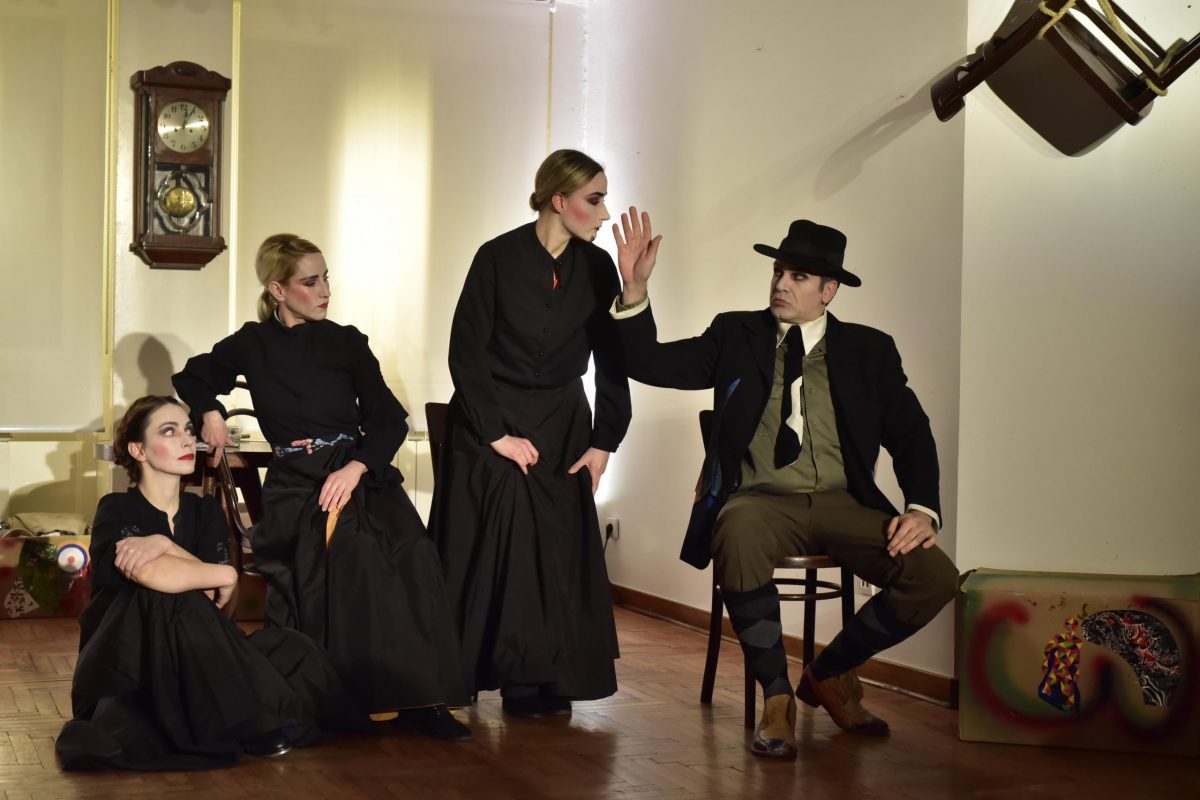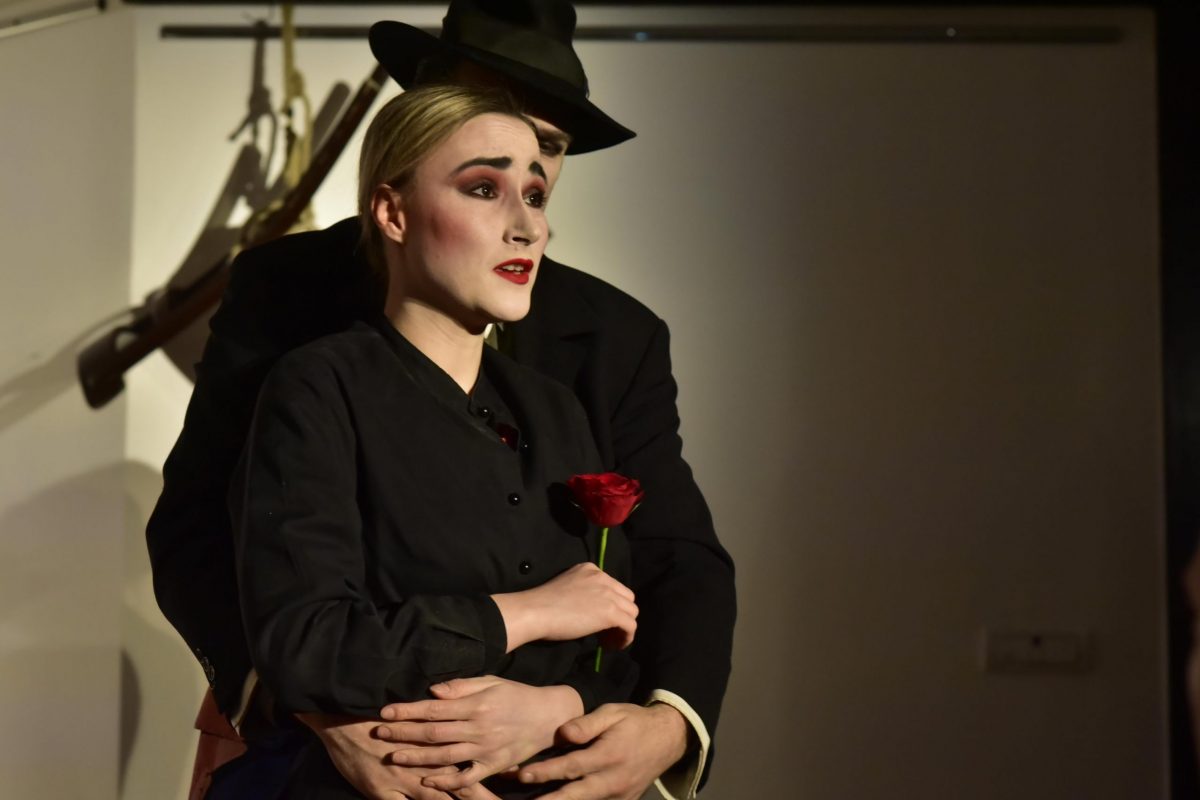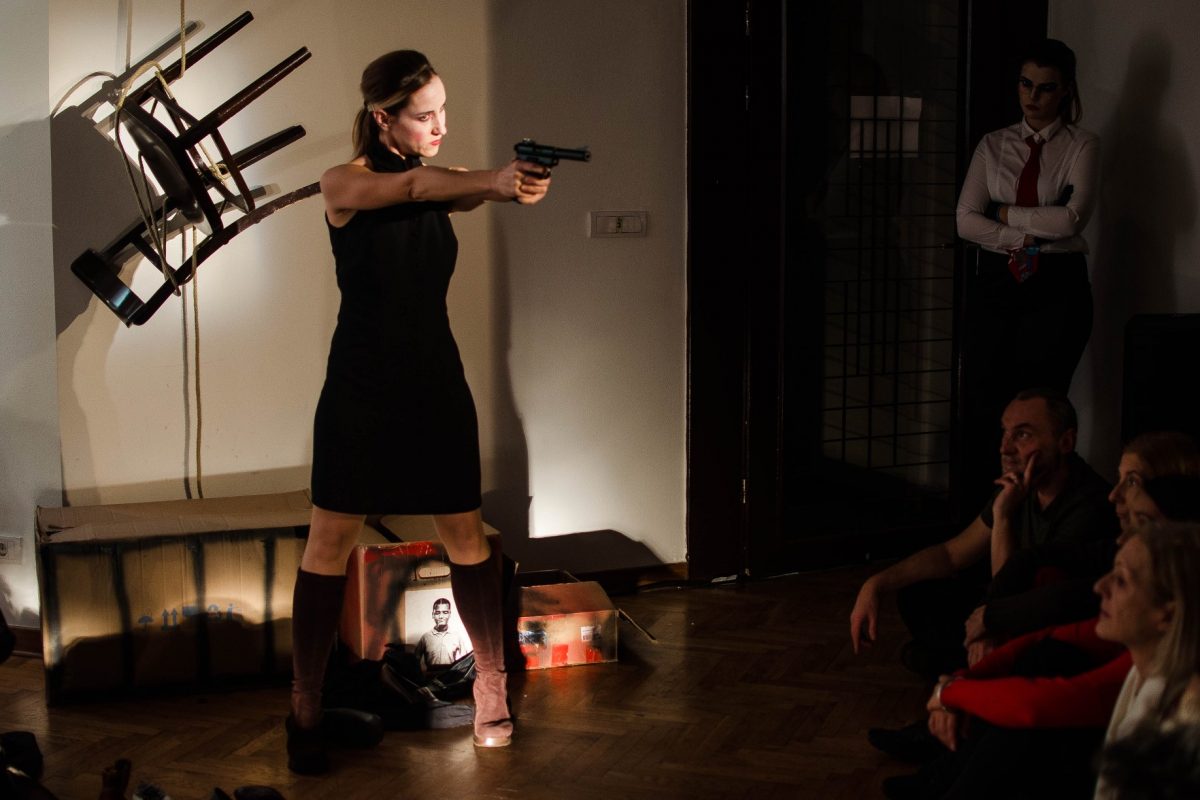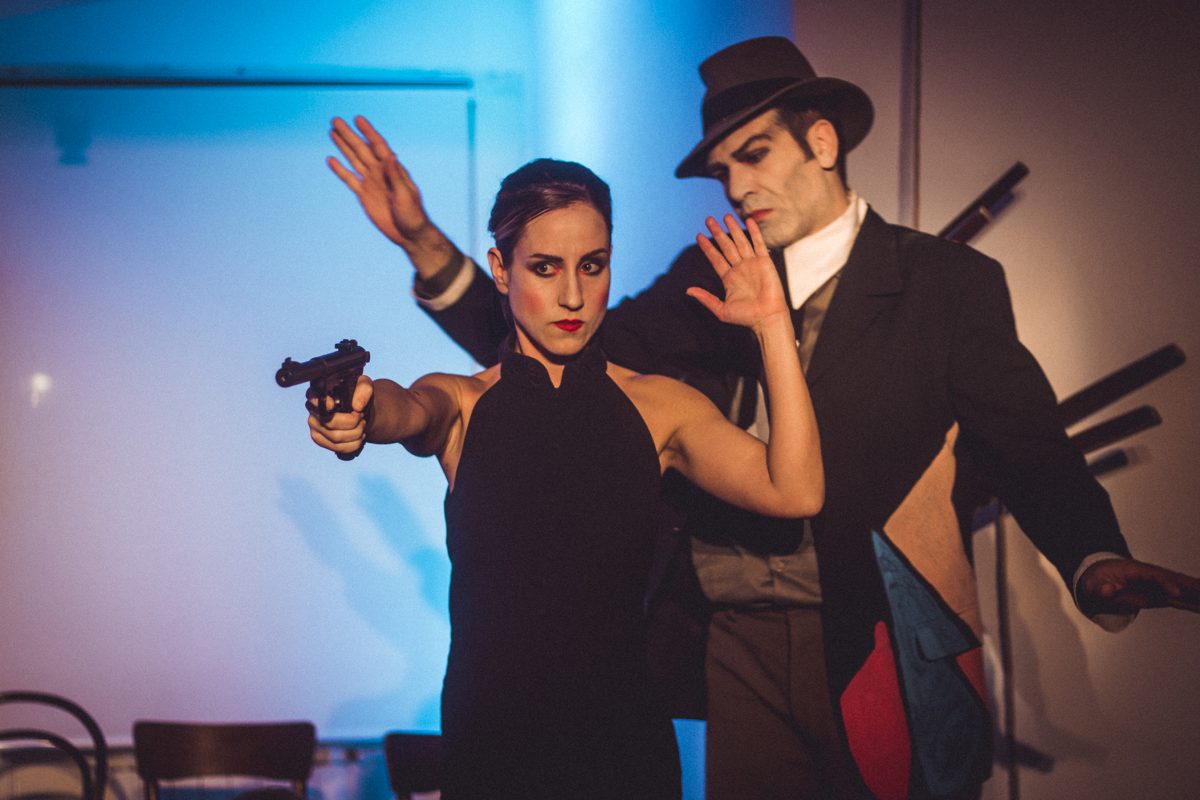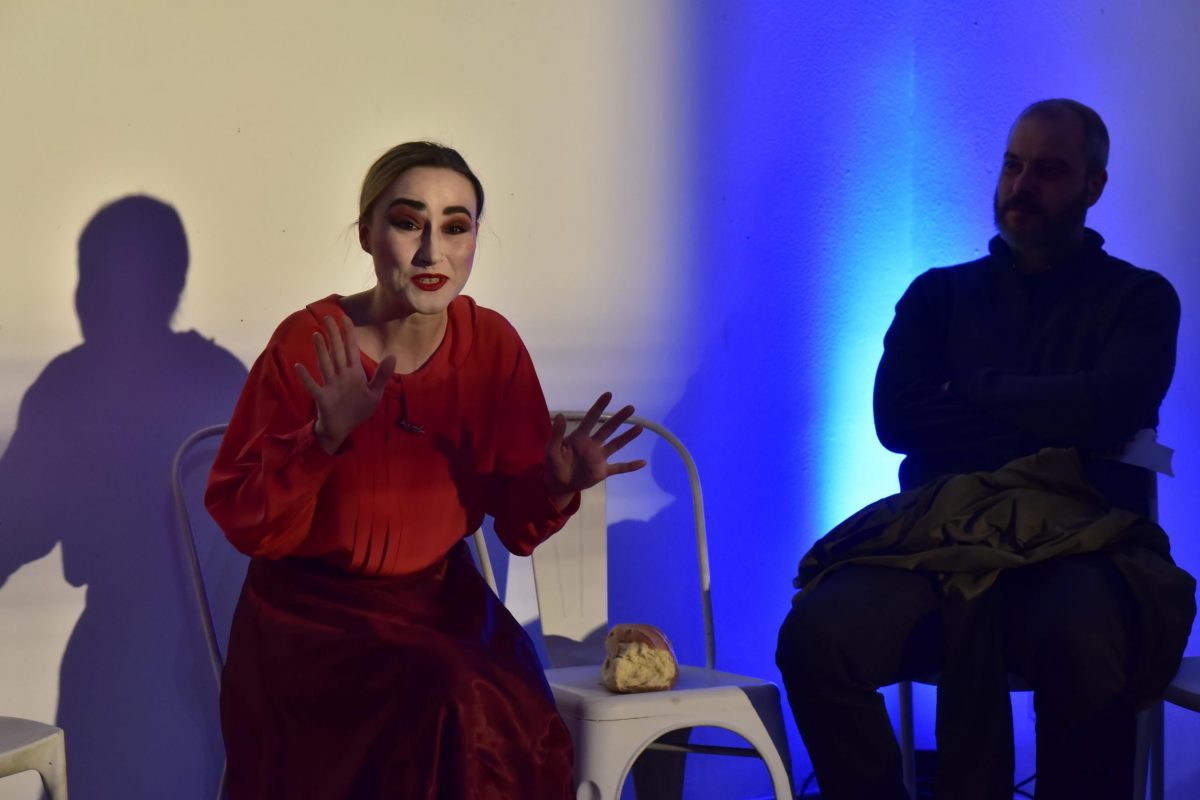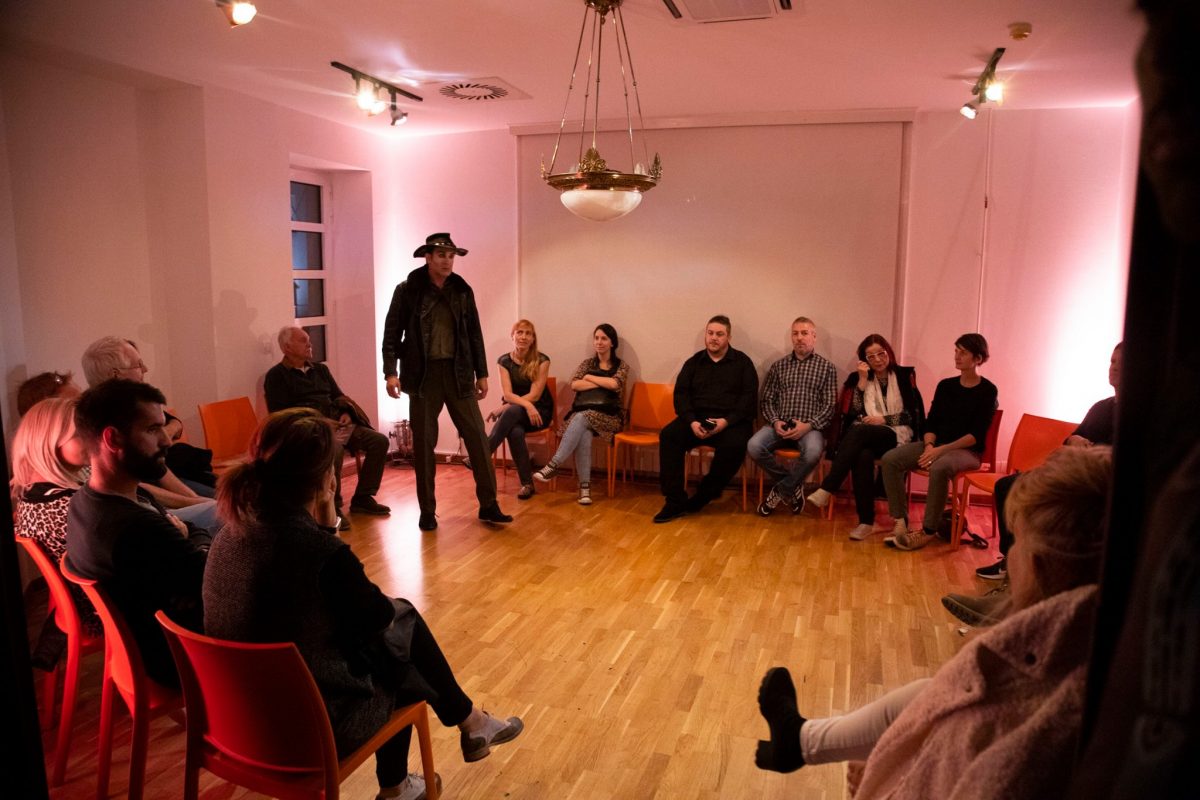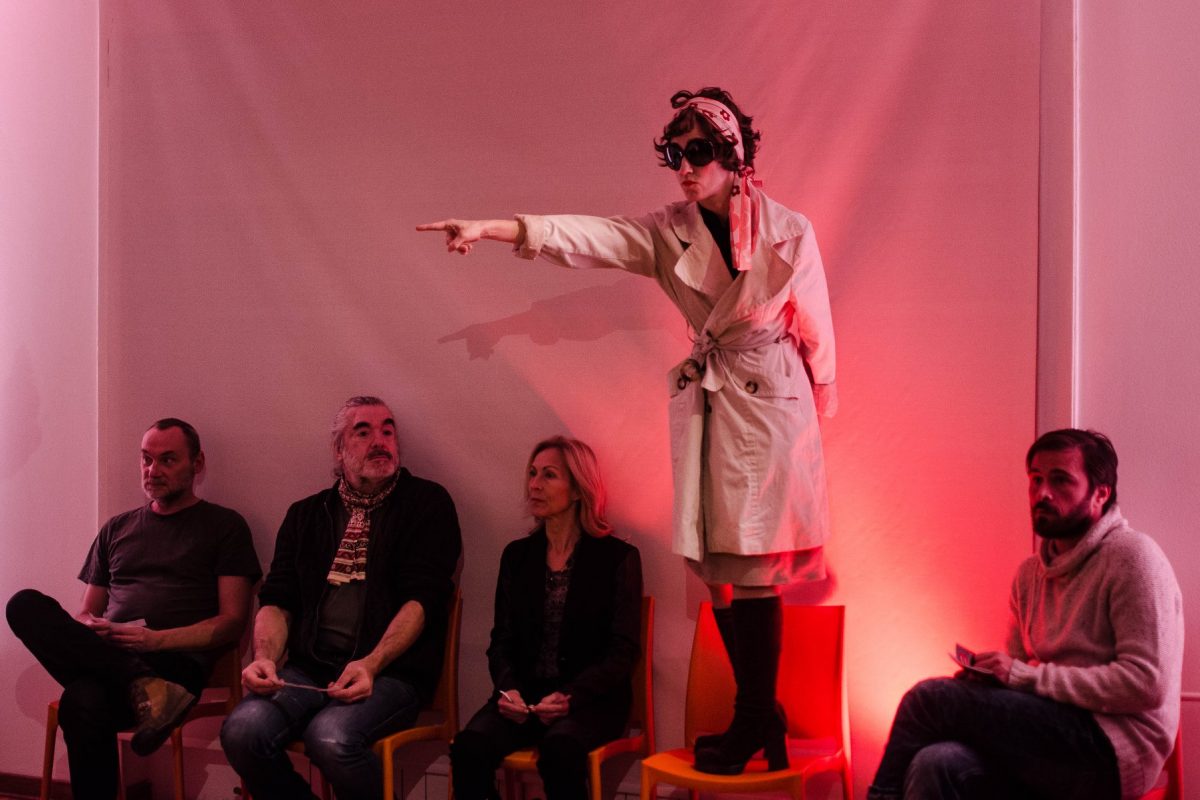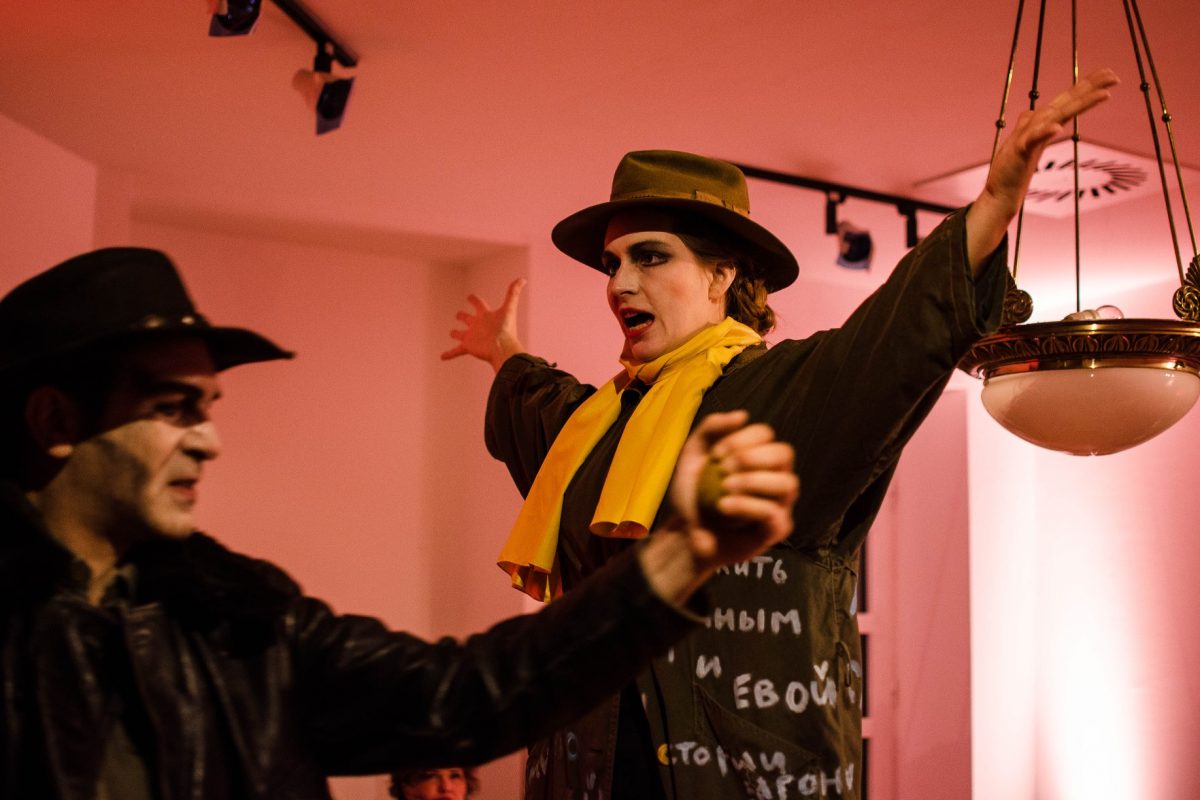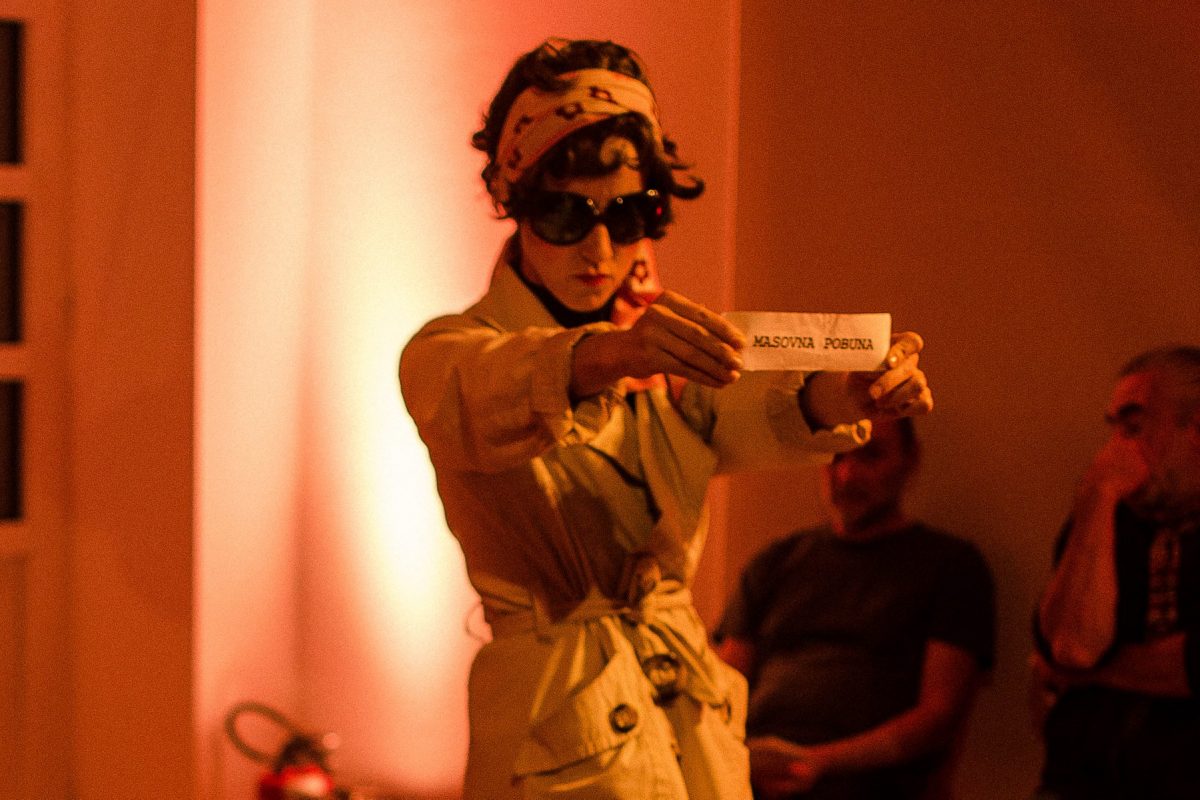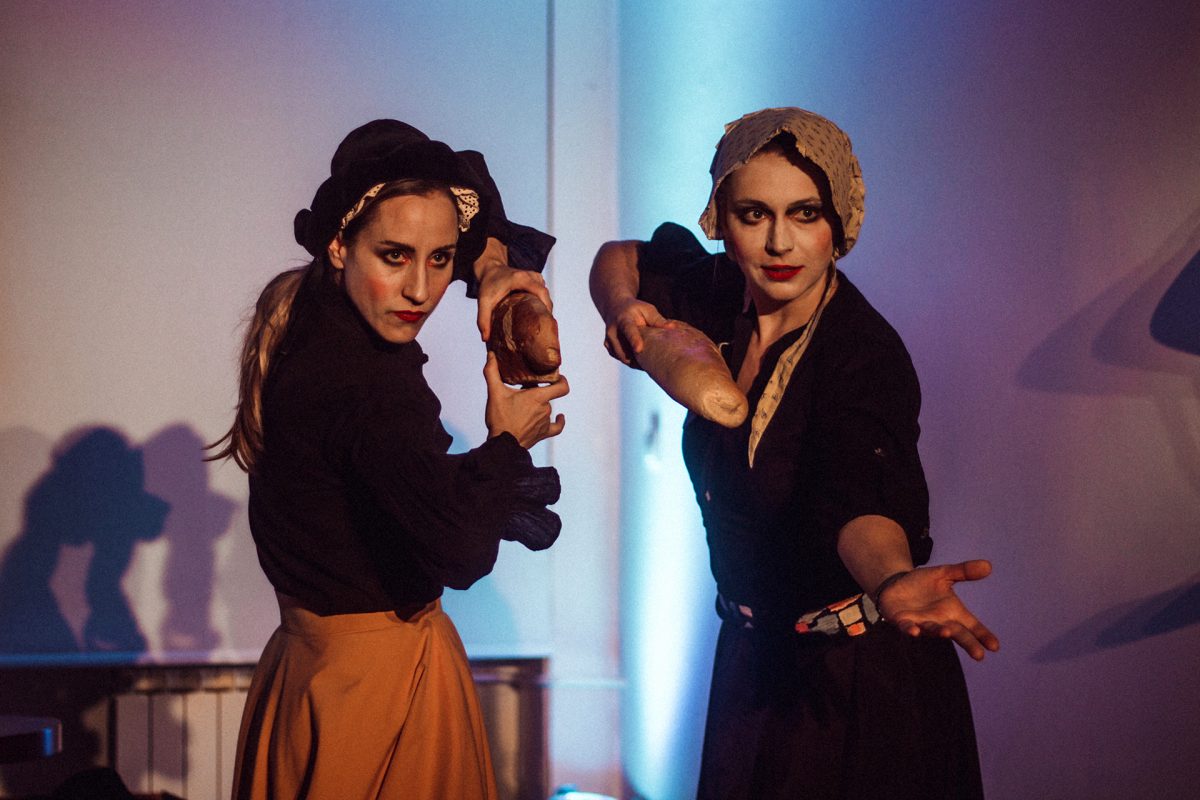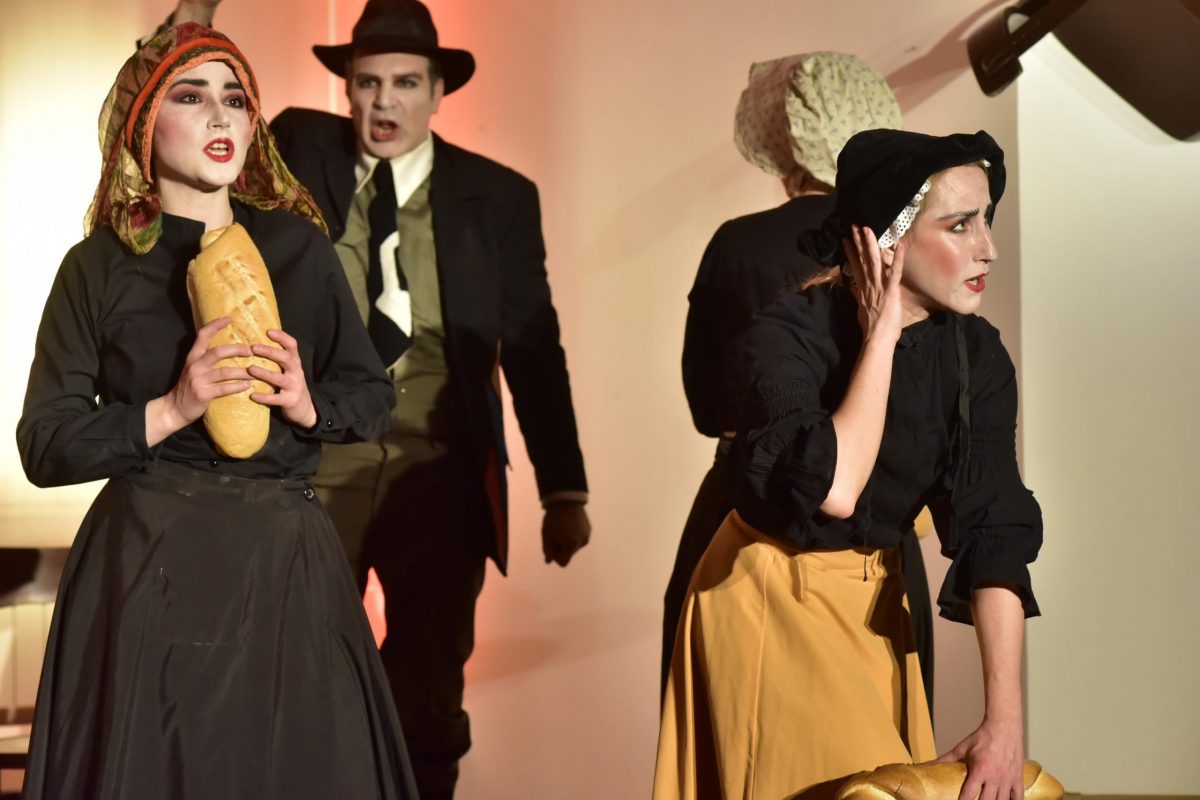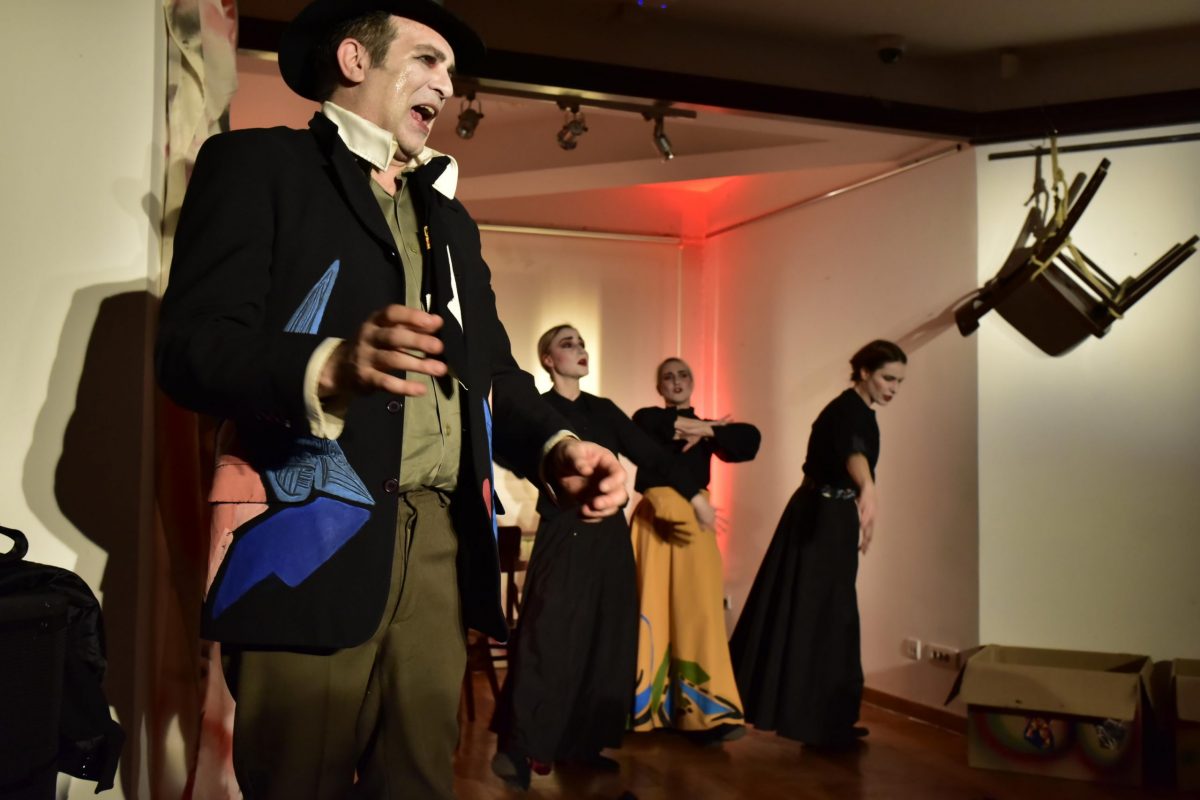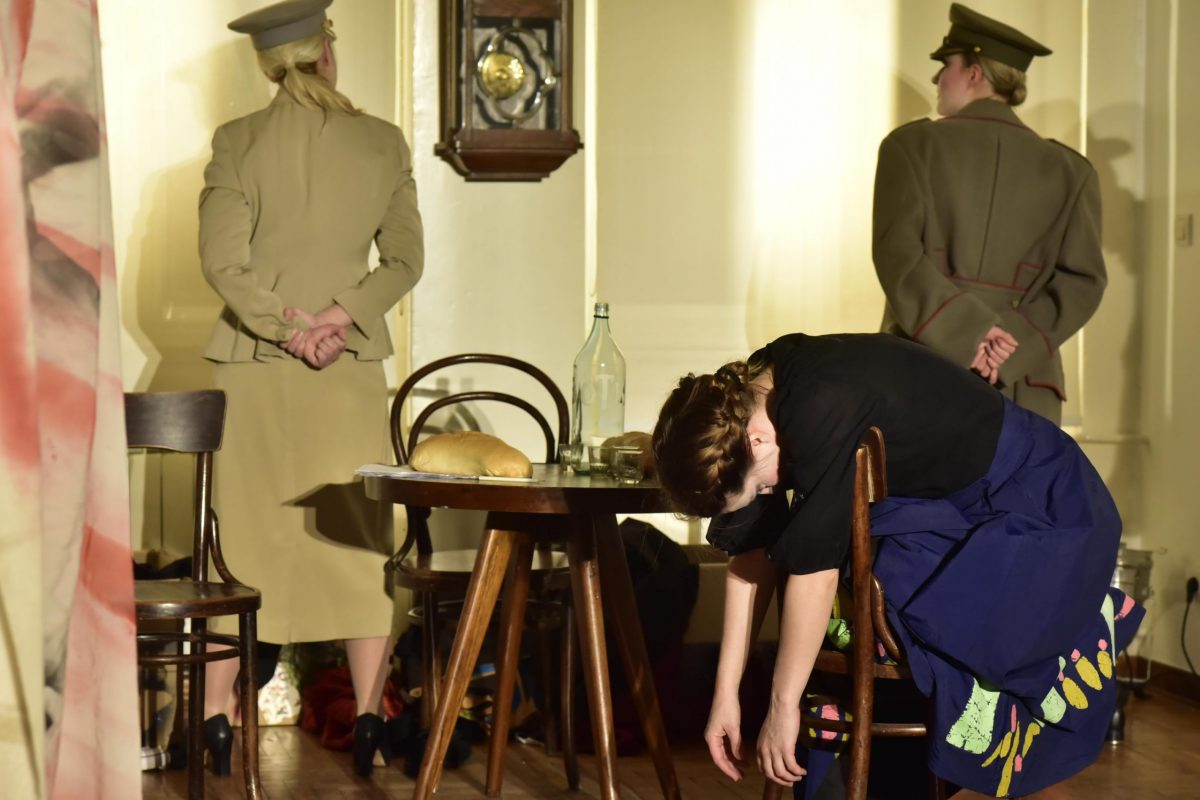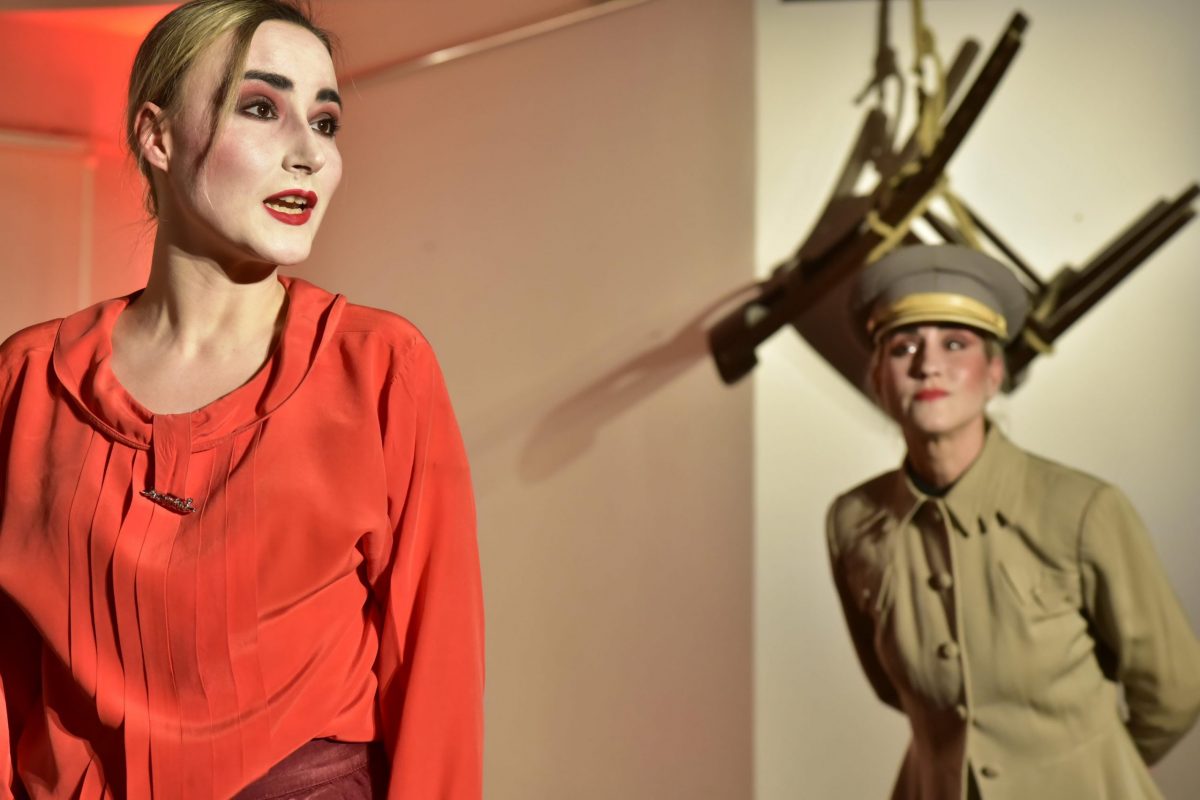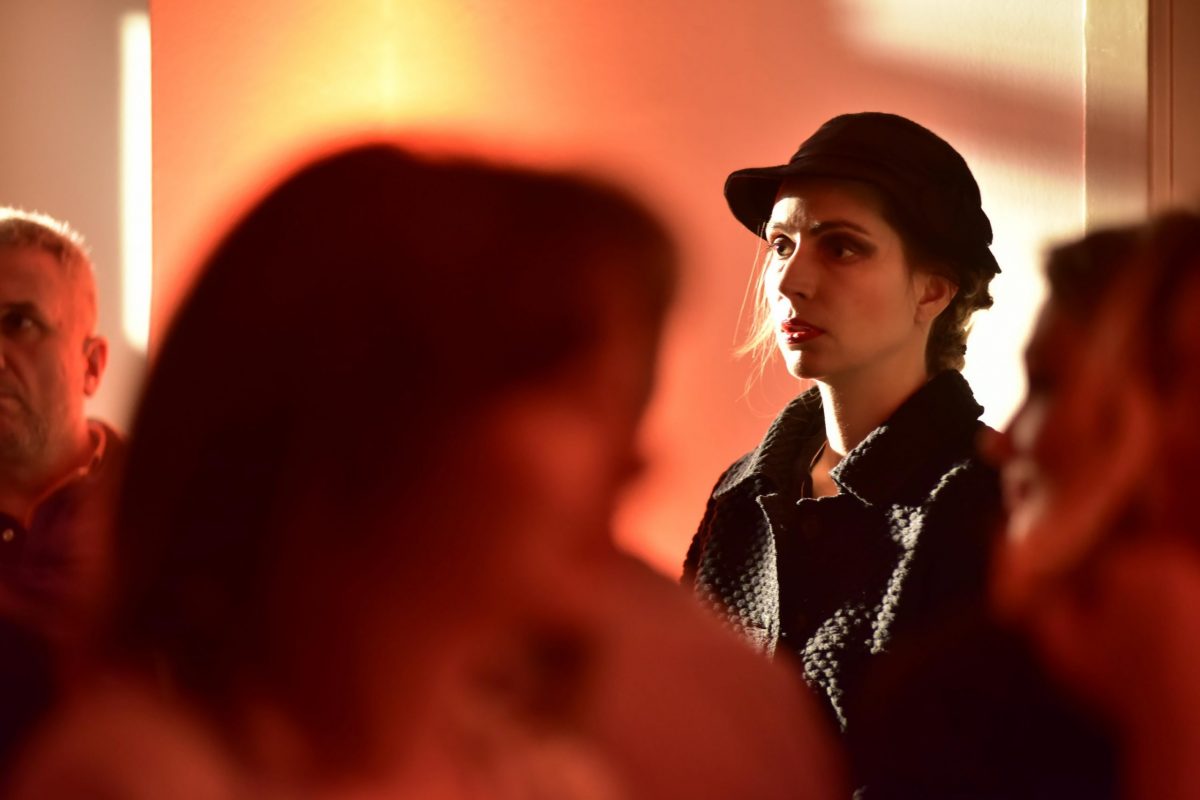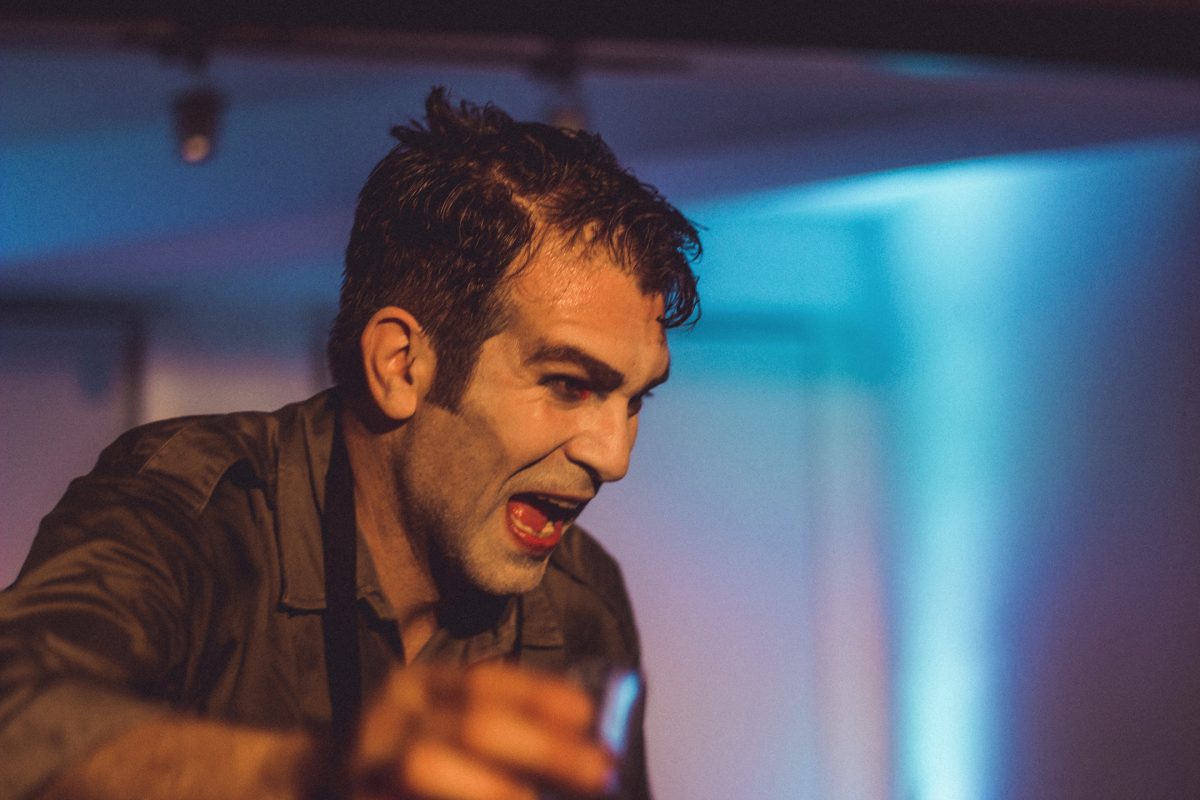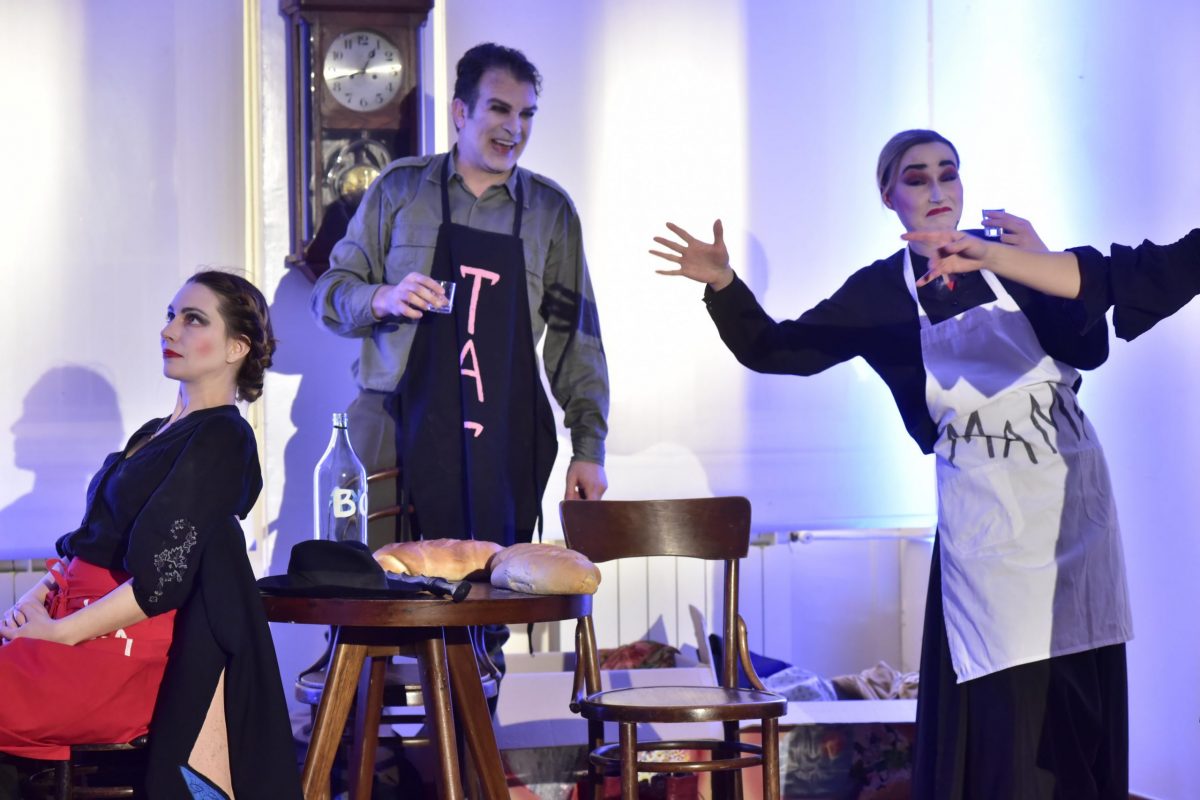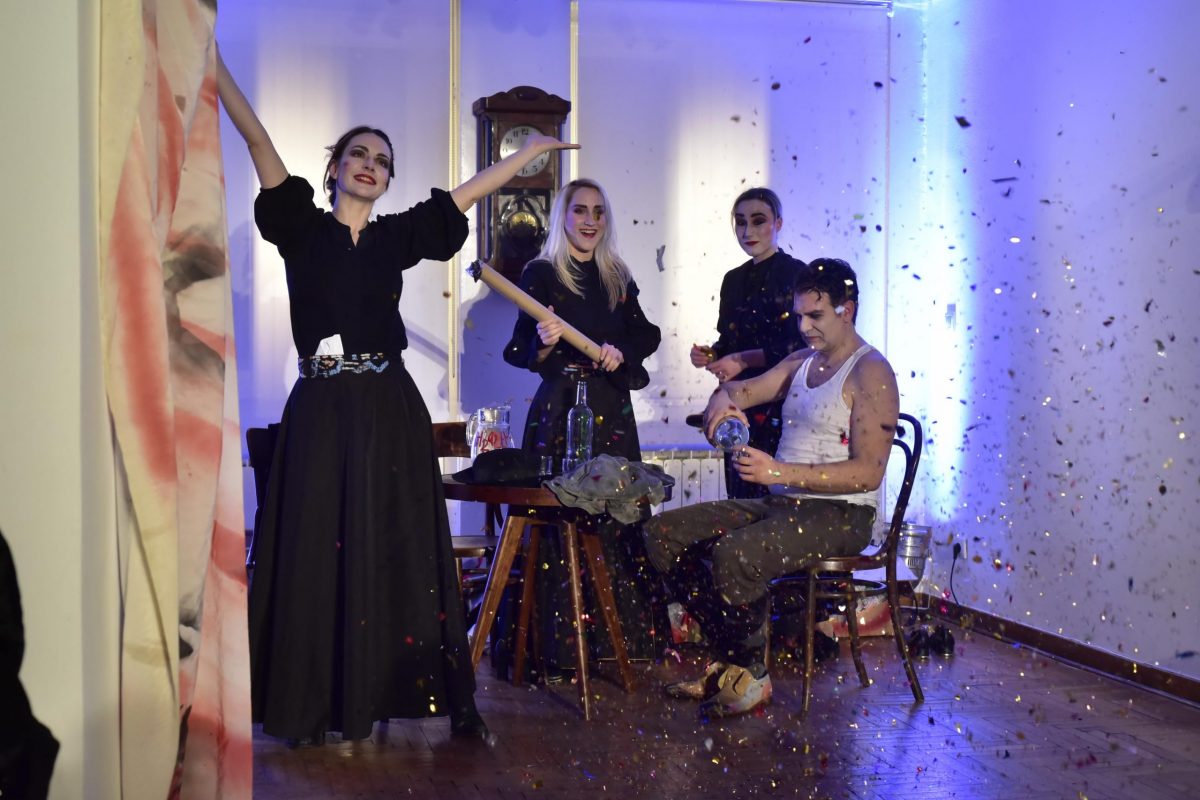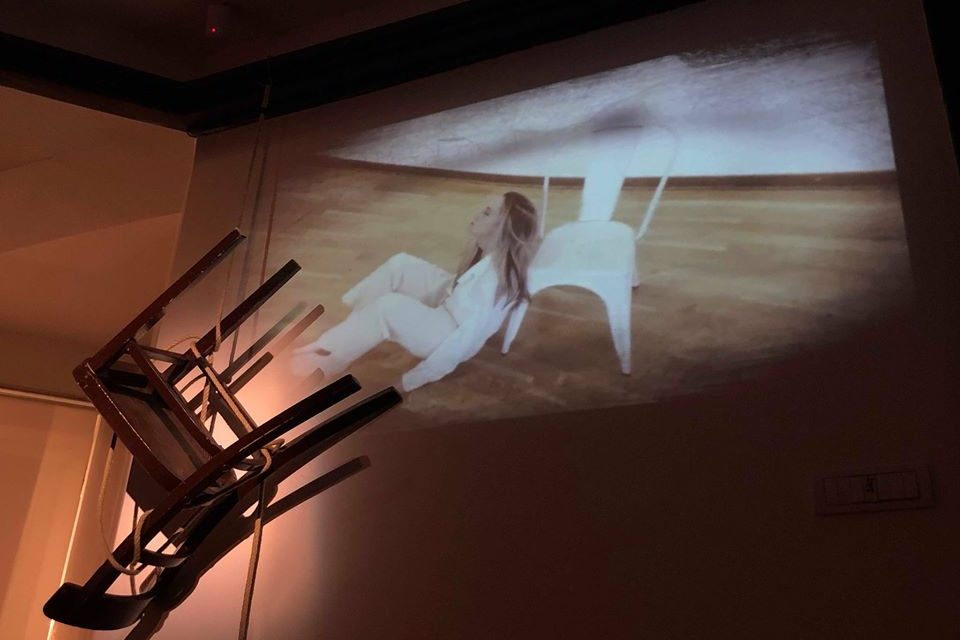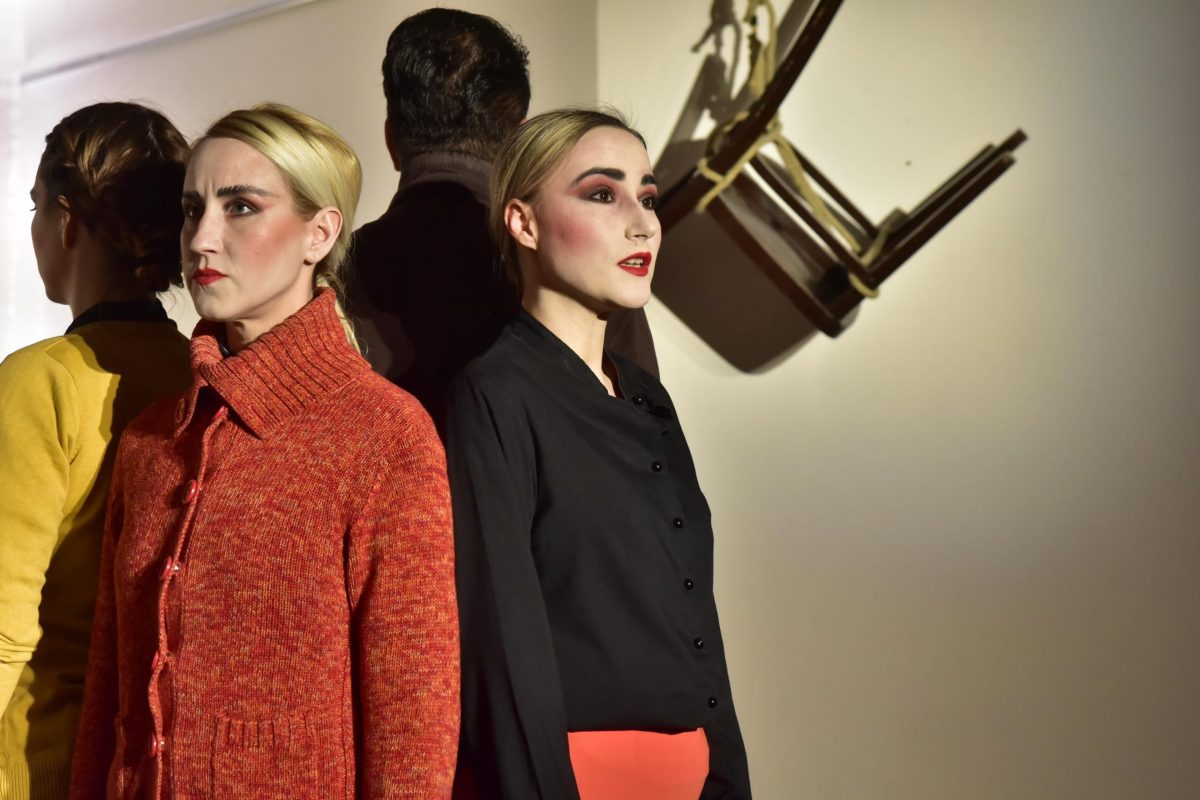THE CONUNDRUM OF
REVOLUTION
Year 2018 marks one hundred years since the end of World War I. It is also the centenary of the Soviet Revolution, the Social Revolution in Germany, and death of Rosa Luxembourg. “Red Rosa,” is still an inspiration for rebellion, in an age when rebellion against everything inhumane, violent, and exploitative – is invisible. She still raises the question: where is the rebellion, is it possible? [2018]
The performance creates an alternative reality in which Rosa Luxembourg gets to meet revolutionaries and poets from across the world- four revolutionaries – Rosa, the Red Army Faction’s member Ulrike Meinnhof, Castro’s comrade-in-arms Camilo Cienfuegos, and Lenin’s assassin Fanny Kaplan, as well as the poets Kharms and Mayakovsky, walk through time and speak to one another, and to us, “from the other side.” Their spirits still breathe down our backs. What are they saying to us today? What is justified in order to gain power and preserve the revolution? How far can the revolution go in preserving its own values?
The frame of this encounter is the world of Kharms’ absurd. Daniil Ivánovich Yuvachov, who used the pseudonym Kharms, was a Russian avant-garde writer. He was convicted of anti-Soviet activity and died of hunger in jail in 1942. Thanks to the bravery of his friends who risked their own lives to save his writings, his work is known throughout the world and today he is considered to be one of the most significant writers of that time period.
The secret dedication of our production is to this writer. As the rehearsal for his own play takes place, everything becomes possible and nothing is impossible. People are disappearing, drunkards are toasting to the revolutions while singing the Lady Gaga and Boney M. hits, the bodies of executed revolutionaries are thrown into a canal, are being burned, or sinking into the ocean, and occasionally bright souls shine through asking us how long we will be silent, inviting us to start disruption, resistance, and fight for meaning beyond the imposed “matrix.”
These characters meet in apartments serving as revolutionary cells, in prison cells, but also in a theater during a rehearsal. The particular space in which the performance takes place, with minimal scenographic interventions, allows us to invite the audience to move through these “cells,” where they will be able to opt for the revolution in which they themselves believe or not opt for any at all. Spectators are no longer just “innocent” observers or consumers of the theatre act – they are also potential accomplices who choose or are chosen to participate in the work of individual “cells.” This process reveals the ideas, delusions, and passions of those who believed in a revolution and a better world. This world needs a revolution, “but each tear that might have been avoided is an indictment” – the words of Rosa Luxemburg are echoing through time.
Director: Dijana Milošević
Dramaturgy: Dubravka Knežević
Authors whose text were used in the performance:
Bertold Brecht, Noam Chomsky, Camilo Cienfuegos, Fanya Kaplan, Daniil Kharms, Rosa Luxemburg, Vladimir Mayakovsky, Ulrike Meinhof, Adam Mickiewicz, Sergey Nechayev, Pablo Neruda, Herbert Read, Gerhard Rempel, Howard Zinn
Performers: Evgenija Eškina Kovačević, Ivana Milenović Popović,
Ivana Milovanović/Milica Petrović, Ivan Nikolić
Scenography: Neša Paripović
Music: Uglješa Majdevac
Singing Assistance: Ljubica Damčević
Costumes: DAH Teatar i Snežana Arnautović
Makeup: Snežana Arnautović
Video Concept: Dijana Milošević i Amy Sarno
Video Production: Anja Turanski
Lights: Milomir Dimitrijević
Production: Nataša Novaković
Performance Semiotics: Amy Sarno
Directing Assistance: Jelena Risteljić
Editor: Radoslav Majdevac
Translation: Duca Knežević
Photography: Marija Čalić, Đorđe Tomić
Premiere: December 20th and 21st, 2018, Cultural Institution “Parobrod,” Belgrade
At the international 22nd ART TREMA FEST in Ruma 2019, the play won four awards: Silver TREMA mask for author’s project; Plaque for total design of the play; Plaque for best costume design and Audience Award.
Supported by The Ministry of Culture of the Republic of Serbia
In collaboration with Cultural Centre PAROBROD


